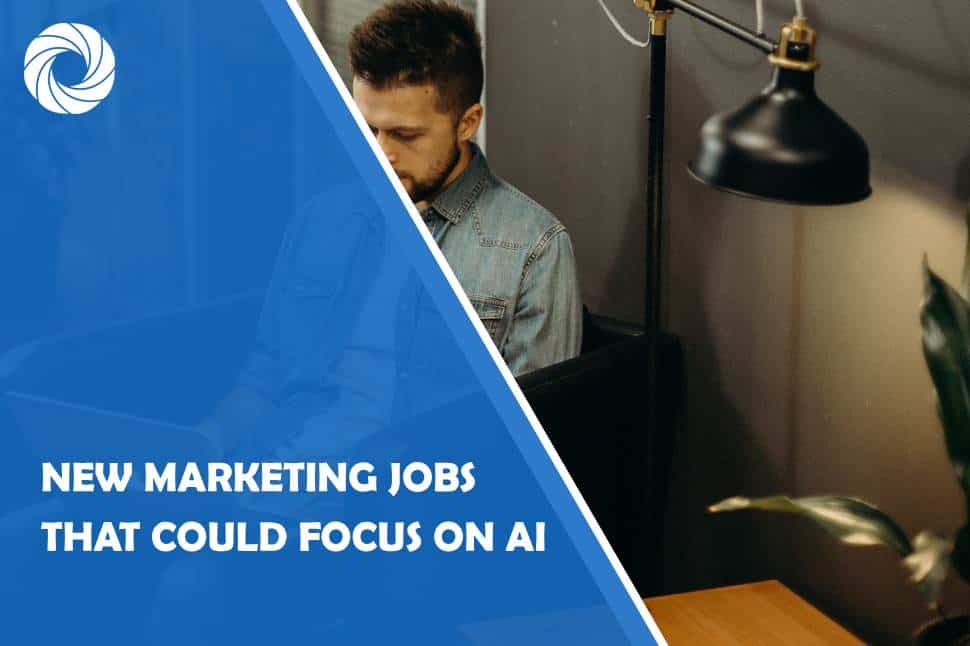The world of marketing is undergoing a transformation driven by the rapid advancements in artificial intelligence (AI). As businesses seek to harness the potential of AI to enhance their marketing efforts, new job roles are emerging that marry creativity with technology. These roles not only reflect the changing landscape of marketing but also highlight the crucial role AI plays in crafting personalized, data-driven campaigns. In this article, we will delve into some of the new marketing jobs that are placing AI at the forefront of strategy and innovation.
1. AI-Powered Content Strategist
Content remains the cornerstone of effective marketing. An AI-powered content strategist combines the creativity of a traditional content creator with the analytical insights of a data scientist. This role involves leveraging AI tools to analyze audience behavior, preferences, and trends to curate content that resonates. Natural language generation (NLG) AI can be utilized to produce personalized content at scale, tailored to different segments of the target audience. An AI-powered content strategist also interprets data to refine content strategies, ensuring that each piece of content contributes to broader marketing goals.
2. Chatbot Copywriter
Chatbots are becoming integral to customer service and engagement. A chatbot copywriter specializes in crafting engaging and conversational scripts for chatbots. These scripts need to strike a balance between providing helpful information and maintaining a human-like interaction. Natural language processing (NLP) AI is essential in ensuring that chatbot responses are contextually relevant and provide accurate solutions to customer queries. The role involves continuous refinement and optimization of chatbot interactions based on user feedback and data analysis.
3. AI-Driven Social Media Manager
Social media management has evolved beyond scheduling posts and responding to comments. An AI-driven social media manager uses AI tools to analyze social media data, identify trends, and optimize content strategies. AI can predict the best times to post, identify high-performing content, and even suggest potential engagement opportunities with influencers. Moreover, sentiment analysis AI helps in gauging audience reactions to campaigns and fine-tuning messaging accordingly. This role blends human creativity with AI insights to create impactful social media strategies.
4. Data-Driven Marketing Analyst
Marketing decisions are increasingly guided by data insights. A data-driven marketing analyst specializes in extracting valuable insights from the vast amounts of data generated by AI tools. This role involves analyzing customer behavior, campaign performance, and market trends to inform strategic decisions. Machine learning algorithms help identify patterns and correlations that human analysis might overlook. The data-driven marketing analyst translates complex data into actionable recommendations for optimizing marketing campaigns and improving ROI.
AI has enabled hyper-personalization, tailoring marketing messages to individual preferences and behaviors. A personalization specialist understands the intricacies of AI algorithms that predict consumer preferences based on historical data. This role involves strategizing and implementing personalized marketing campaigns that resonate with each customer segment. Personalization specialists collaborate with data scientists to fine-tune algorithms, ensuring accurate recommendations and product suggestions. They aim to create a seamless and relevant customer experience across various touchpoints.
6. AI Ethicist in Marketing
As AI becomes more prevalent in marketing, ethical considerations are paramount. An AI ethicist in marketing ensures that AI-powered campaigns and strategies align with ethical guidelines. This role involves evaluating the potential biases in AI algorithms and ensuring that AI-driven decisions do not discriminate or harm certain groups. AI ethicists collaborate with marketing teams and data scientists to develop responsible and inclusive AI strategies that enhance customer trust and brand reputation.
7. Voice Search SEO Specialist
With the rise of voice assistants like Siri and Alexa, optimizing for voice search is crucial. A voice search SEO specialist focuses on tailoring content and SEO strategies to accommodate voice search queries. This role involves understanding how people naturally speak and structuring content to match conversational search patterns. AI-powered tools can assist in analyzing voice search data and identifying emerging trends. The voice search SEO specialist ensures that brands remain visible and relevant in the age of voice-driven search queries.
The integration of AI into marketing has created a synergy between human creativity and technological innovation. These new marketing roles centered around AI highlight the dynamic nature of the field, where professionals adept in both data analysis and creative thinking are in high demand. As AI continues to reshape marketing strategies, these roles pave the way for a future where personalized, data-driven campaigns are not just a possibility but a standard practice. By embracing these roles, businesses can navigate the evolving landscape of marketing and deliver more impactful, relevant, and engaging experiences to their audiences.
